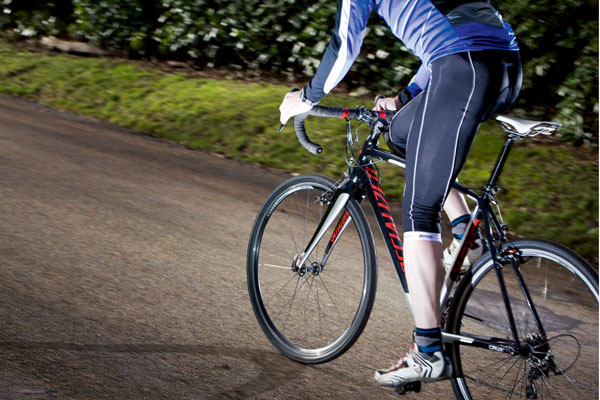Can beta-alanine improve your performance?

Beta-alanine, a naturally occurring amino acid found in the body, first hit the headlines back in 1999 when it was found to be present in samples taken from a Martian meteorite known as Nakhla!
These days, beta-alanine attracts more attention from sports scientists because studies in the lab have indicated that it can boost performance during short-duration (one-two minutes) maximal exercise. The explanation seems to be that (given as a supplement) beta-alanine increases muscle levels of a natural substance called carnosine.
These increased levels of muscle carnosine can help offset the build-up of fatiguing lactate during high-intensity exercise, which in turn can enhance sprint and short-distance performance. And now, a new study on cyclists by Aussie scientists adds further weight to the claims that taking a beta-alanine supplement can produce real benefits.
The science
In the study (which was randomised, double-blinded and placebo controlled - this is considered the most rigorous and reliable type of scientific study - researchers examined the effects of supplementing 65mg per kilo of bodyweight of beta-alanine on muscular performance in 16 highly trained cyclists over a four-week period. Before, and again after the supplementation period, all the cyclists performed two performance tests:
- A four-minute maximal cycling test to measure maximum average power.
- 30 reps of maximal force knee contractions on an isokinetic resistance machine (at a fixed speed of 180° per second) to measure average power per repetition, the total work done and also a fatigue score.
- The cyclists were also tested for levels of blood lactate after each test to see how supplementation affected blood lactate accumulation (if at all).
In a nutshell
Beta-alanine was found to increase the average power output during the four-minute cycling time trial compared to the placebo, although this increase was not ‘statistically significant'.
The latest race content, interviews, features, reviews and expert buying guides, direct to your inbox!
In plain English, this means that while there seemed to be a marked improvement in average power output with beta-alanine, the increase wasn't quite large enough for the scientists to be totally confident of the effect. What wasn't in any doubt was that compared to the placebo, the average power per repetition on the isokinetic machine was significantly increased after beta-alanine supplementation - 6.8 watts per rep with beta-alanine v 4.3 watts per rep with the placebo.
Also, the cyclists reported significantly less perceived fatigue when they took the beta-alanine compared to placebo, even though lactate measures were similar in both cases.
So what?
These results provide yet more evidence that beta-alanine can benefit cycling performance, especially in events that require sprints or surges of power.
The four-minute power result wasn't scientifically conclusive but had this test been shorter (remember, beta-alanine boosts short-term power) or had it used a larger number of subjects, then the increase in power observed would have almost certainly have ticked that box.
One caveat is that beta-alanine doses similar to those used in this study can produce a tingling under the skin (called paraesthesia), especially when taken on an empty stomach, so it's best taken with food.
Int J Sport Nutr Exerc Metab. 2013 Apr 18. [Epub ahead of print]
This article was first published in the May 23 issue of Cycling Weekly. Read Cycling Weekly magazine on the day of release where ever you are in the world International digital edition, UK digital edition. And if you like us, rate us!

Thank you for reading 20 articles this month* Join now for unlimited access
Enjoy your first month for just £1 / $1 / €1
*Read 5 free articles per month without a subscription

Join now for unlimited access
Try first month for just £1 / $1 / €1
Founded in 1891, Cycling Weekly and its team of expert journalists brings cyclists in-depth reviews, extensive coverage of both professional and domestic racing, as well as fitness advice and 'brew a cuppa and put your feet up' features. Cycling Weekly serves its audience across a range of platforms, from good old-fashioned print to online journalism, and video.